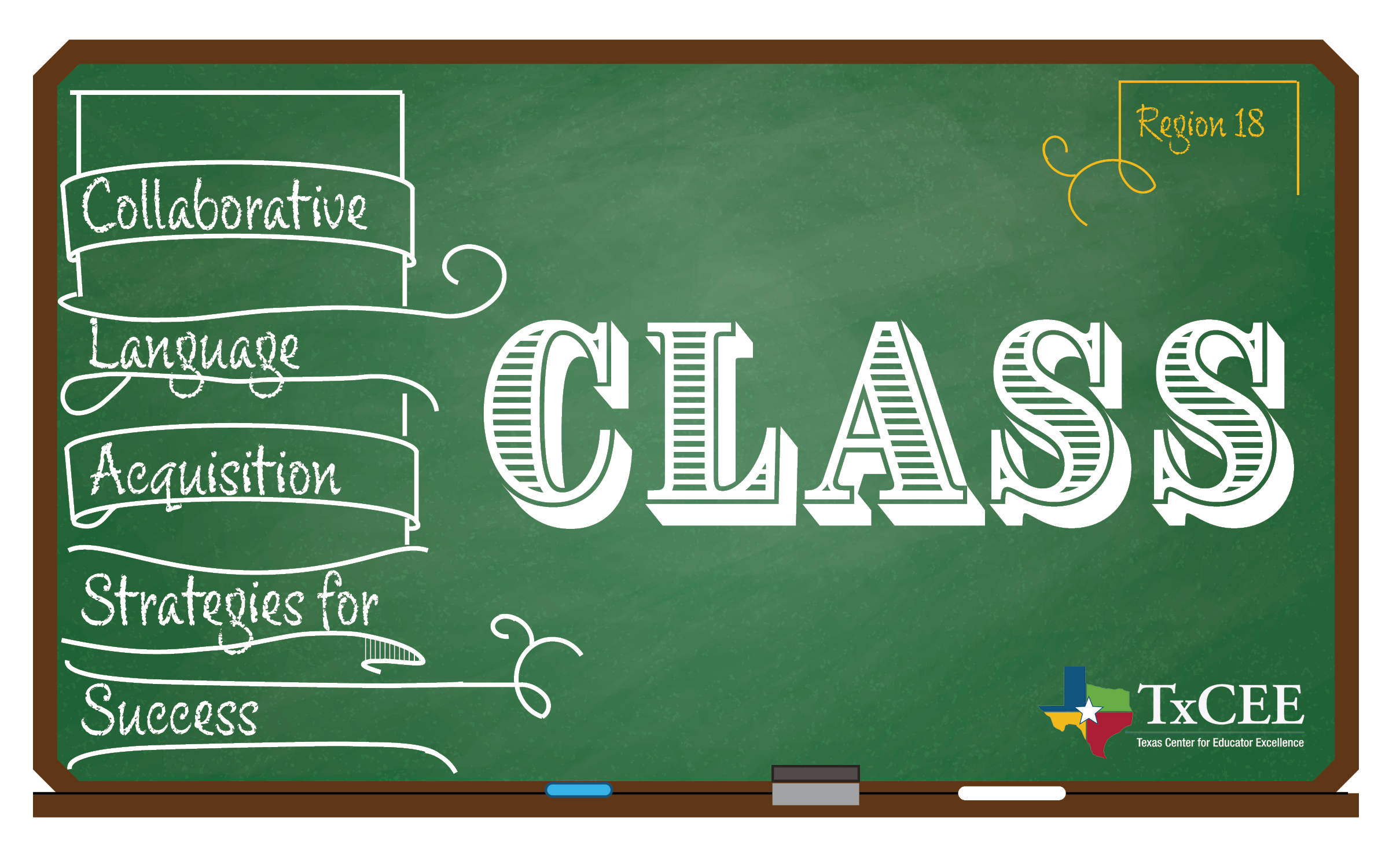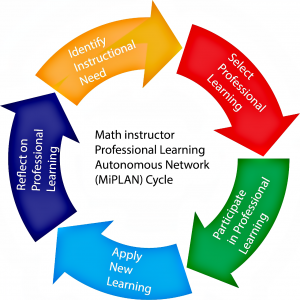
Grants
Navigation

Collaborative Language Acquisition Strategies for Success
The Texas Center for Educator Excellence (TxCEE) at the Region 18 Education Service Center is partnering with the American Institutes for Research® (AIR®) to conduct the Collaborative Language Acquisition Strategies for Success (CLASS) project for Emergent Bilinguals (EBs), funded through the U.S. Department of Education’s National Professional Development (NPD) grant program.
What are the benefits of participating?
- High-quality, research-based professional development (PD) to improve instruction for EBs and assist PK-5 educational personnel working with EBs to meet professional standards
- Career pathway opportunities for teacher leaders to facilitate learning communities and mentor novice teachers while earning a $500 stipend for taking on additional responsibilities
- Online library of PD content aligned with What Works Clearinghouse standards to provide enrichment and assist in preparing teachers for meeting bilingual/ESL education certification requirements
- Enhance EB early learning and family engagement to build foundations for academic success
What does participation look like?
- Planning year to engage stakeholders in creating and refining PD aligned with needs (2022-23 SY)
- Ongoing data-informed collaborative learning communities (CLC) across 3 tiers (2023-26 SYs)
- Side-by-side gradual release through a trainer-of-trainer model (2024-26 SYs)
Study Design
Beginning in the 2023-24 school year, AIR will conduct a formal evaluation of the CLASS project to inform project implementation and outcomes, as well as guide possible replication of activities. Data collection efforts include teacher surveys, teacher-leader interviews, and teacher and parent focus groups.


Math Instructor Professional Learning Autonomous Network
A partnership with the American Institutes for Research® (AIR®)
Let’s Make MiPLAN Your Plan
TxCEE is currently working with 26 campuses across 14 Texas school districts to implement MiPLAN as a part of an Education Innovation and Research (EIR) Grant from the U.S. Department of Education
MiPLAN Benefits
- Up to $8,000 for math teachers in grades 3-8 to participate in high-quality professional learning (PL)
- Pre-approved list of world-class service providers
- Teachers self-select the PL that best meets their needs
- Professional coaching throughout the process
MiPLAN
Opportunity Reviews
MiPLAN
Success Stories

What Participation Looks Like
District and Campus Leaders
- Participate in 2 advisory committee meetings per year
- Provide input into the PL list and process
- Release 24 hours of state-mandated PL for participating teachers
Teachers
- Complete 2 cycles of evidence-based PL
- Implement new learning in the classroom
- Complete a reflection on the effectiveness of the PL strategies
Big Bend National Board Cohort
Five districts have joined together to participate in the Big Bend National Board Cohort funded by a TEA grant. The participating districts will select qualified teachers to engage in the National Board certification process. Interested teachers should contact their Superintendent for additional information and the application. Districts that are participating are listed below.
- Alpine ISD
- Marfa ISD
- Marathon ISD
- Presidio ISD
- Terlingua CSD
What is National Board?
National Board for Professional Teaching Standards (NBPTS) is a not-for-profit professional organization, created and governed by practicing teachers and their advocates. National Board believes higher standards for teachers mean better learning for students. National Board Certification validly and reliably identifies when teachers meet the standards for accomplished teaching, that were developed by teachers with the NBPTS.
How does National Board Certification work with the Teacher Incentive Allotment (TIA)?
Eligible National Board Certified Teachers (NBCTs) will earn a Recognized designation on their Texas educator certificate. The designation will expire in conjunction with the teacher’s National Board Certification. To be eligible for the Recognized TIA designation, NBCTs must have a one-year or standard Texas teaching certificate. Teachers with a Recognized designation must be employed as a Texas teacher (087 role ID in PEIMS) and complete a creditable year of service in order to generate funding for that year. The recognized designation generates anywhere from $3,000 to $9,000 for the NBCT’s district. The total amount depends on the socioeconomic status of the students and the campus’ rural status.
5 Core Propositions
Certification centers on the 5 Core Propositions listed below.
- Teachers are committed to students and their learning
- Teachers know the subjects they teach and how to teach those subjects to students
- Teachers are responsible for managing and monitoring student learning
- Teachers think systematically about their practice and learn from experience
- Teachers are members of learning communities
Four Components of the Certification Process
- Component 1: Content Knowledge – A computer-based assessment asks you to demonstrate your understanding of content knowledge and pedagogical practices for teaching your content area. You must demonstrate knowledge of developmentally appropriate content, which is necessary for teaching across the full age range and ability level of your chosen certificate area.
- Component 2: Differentiation in Instruction – This portfolio entry requires that candidates gather and analyze information about individual students’ strengths and needs and use that information to design and implement instruction to advance student learning and achievement. You will submit selected work samples that demonstrate the students’ growth over time and a written commentary that analyzes your instructional choices.
- Component 3: Teaching Practice and Learning Environment – This portfolio entry requires video recordings of interactions between you and your students. You will also submit a written commentary in which you describe, analyze, and reflect on your teaching and interactions with students.
- Component 4: Effective and Reflective Practitioner – This portfolio entry requires you to demonstrate evidence of your abilities as an effective and reflective practitioner in developing and applying knowledge of your students; your use of assessments to effectively plan for and positively impact your students’ learning; and your collaboration to advance students’ learning and growth.
